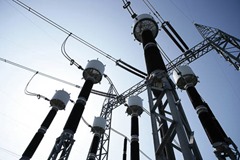Utility prices under the spotlight
 Michael McKernan weighs up the political debate on cutting energy prices in Great Britain and the state of play in Northern Ireland.
Michael McKernan weighs up the political debate on cutting energy prices in Great Britain and the state of play in Northern Ireland.
Few would have expected that with the Westminster party conference season over for another year, the big issue emerging from the many days of policy deliberation would be government control of energy prices.
Yet the Labour Party pledge to freeze energy prices for 20 months – initially dismissed by the Conservatives as a gimmick and criticised by many large energy companies – has following the
8.2 per cent price increase announced a few days later by Scottish and Southern Energy (SSE), put energy prices right under the political spotlight.
And people are asking the simple questions for which there appear to be very few simple answers.
For example, when asked about the price increase, the SSE spokesman could simply not explain why an 8.2 per cent increase was necessary for SSE now, when wholesale fuel costs had only gone up by around 4 per cent since SSE’s last price announcement.
Those in the industry point out that due to time lags, financial hedges and other instruments, it is almost impossible for the public to see a direct relationship between base fuel prices and retail energy tariffs. The companies who retail energy to final customers protest that not only are their costs subject to fluctuations in world fuel prices, but also a final unit of electricity, for example, comprises various other cost elements outside the retailer’s control. And anyway, they argue, energy companies are subject to tight price regulation, so they can’t just charge what they like.
However, the overall lack of transparency generally has allowed suspicions to grow that the ordinary customer is being ‘ripped off’ by the big energy corporations and that utility regulators are not succeeding in protecting the customer interest. And that is where some of the party political agitation lies: who stands for big business and who is with the man on the street?
It is not that long ago, in Northern Ireland, that there was so much public outcry around energy price hikes, that the previous energy regulator was invited in to go over the calculations of the then current regulator – to ensure no mistakes had been made in granting the utilities such large price increases. He found that none had.
Fortunately, Northern Ireland has only a handful of regulated utilities. Telecoms is largely a competitive market and water is substantially funded directly from public expenditure. That leaves electricity and gas. Even in this sector, despite the small number of players, there are few allegations of abuse of market power, a charge increasingly levelled at the ‘Big Six’ energy companies in Great Britain. Also, there can be little doubt that in Northern Ireland the Utility Regulator has not been shy about challenging the utility companies over their financial plans.
In the case of gas, the regulator refused to allow Northern Ireland’s largest gas company (Phoenix) the operational and capital spending it claimed to require (and which customers would ultimately have to pay for) with the matter ending up in arbitration through the Competition Commission.
On the electricity side, there was an even greater difference of opinion between what the company (NIE) felt it should spend on its networks and what the regulator thought the company needed to spend. The higher the investment by the company, the higher the bill for final customers. This protracted and intense dispute has also gone to the Competition Commission for formal decision, and the outcome is very much anticipated by the sector.
With a major UK political row about energy prices now well under way, no let-up in the volatility of world fuel prices and, in Northern Ireland, a situation where around half of all households are in fuel poverty, it should be an interesting time ahead for the newly appointed Northern Ireland Utility Regulator, Jenny Pyper.





